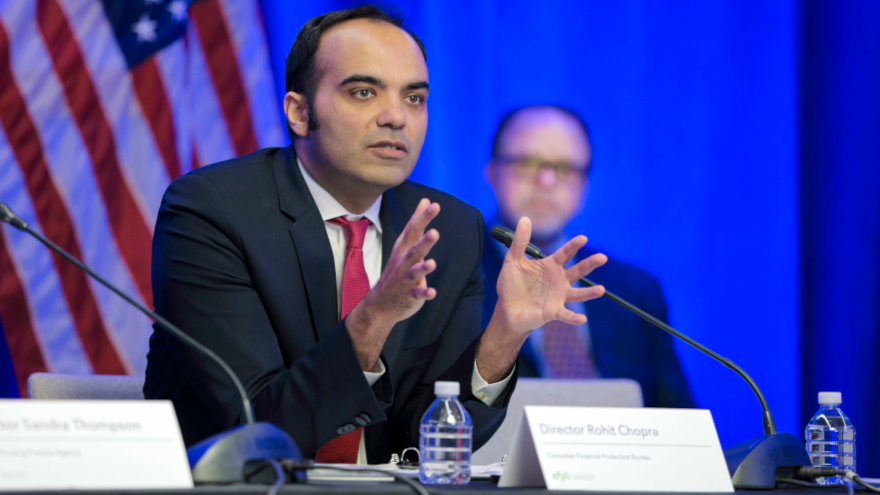CFPB focuses on forwarders in new report about repossessions

Consumer Financial Protection Bureau director Rohit Chopra. Image courtesy of the CFPB.
By subscribing, you agree to receive communications from Auto Remarketing and our partners in accordance with our Privacy Policy. We may share your information with select partners and sponsors who may contact you about their products and services. You may unsubscribe at any time.
The industry’s wait for the Consumer Financial Protection Bureau (CFPB) to release more findings stemming from its project associated with auto financing finally ended on Thursday morning.
The CFPB said its resulting report showed that the rate of auto repossessions at the end of 2022 surpassed pre-pandemic levels.
Additionally, the bureau said finance companies were increasingly more likely to use third parties — forwarders — to manage the repossession process.
“The use of a third party generally increases consumer costs,” officials said in a news release.
Through its Auto Finance Data Pilot, the CFPB analyzed data from nine major auto finance companies covering accounts with activity between 2018 and 2022.
The bureau said other key findings in the report include:
Subscribe to Auto Remarketing to stay informed and stay ahead.
By subscribing, you agree to receive communications from Auto Remarketing and our partners in accordance with our Privacy Policy. We may share your information with select partners and sponsors who may contact you about their products and services. You may unsubscribe at any time.
—Vehicles eligible for repossession exceeded pre-pandemic levels: In the month of December 2022, 0.75% of all outstanding contracts were assigned to repossession — a 22.5% increase from December 2019 (0.61%).
—Repossessions completed using forwarders had higher costs charged to consumers: Finance companies’ use of third-party repossession forwarding companies increased from 31% in January 2018 to 66% in December 2022. Average repossession costs charged to consumers were higher when a forwarder was used, according to the CFPB analysis.
—Consumers still owed thousands after repossession: The CFPB acknowledged consumers can continue to owe money on their vehicle even after it is repossessed and remarketed by the finance company.
The average outstanding balance for consumers that had an outstanding balance after repossession in December 2019 was more than $10,000. Following a brief drop, the average outstanding balance sharply increased and was more than $11,000 in December 2022.
“Supply chain shocks and higher interest rates drove up costs to purchase and finance a car,” CFPB director Rohit Chopra said in the news release. “With outstanding auto loans exceeding a trillion dollars, it’s critical that borrowers can avoid the costly consequences of repossession.”
In June, the Consumer Financial Protection Bureau shared seven initial findings from its Auto Finance Data Pilot, which was deployed in February 2023.
Most of the initial findings from the CFPB revolved around negative equity, discovering more than 10% of contracts originated between 2018 and 2022 had a balance rolled into the new financing.


